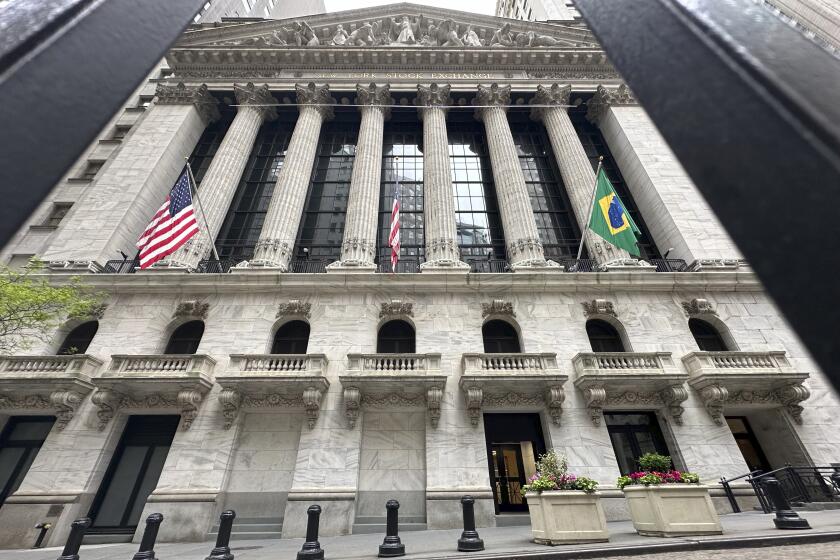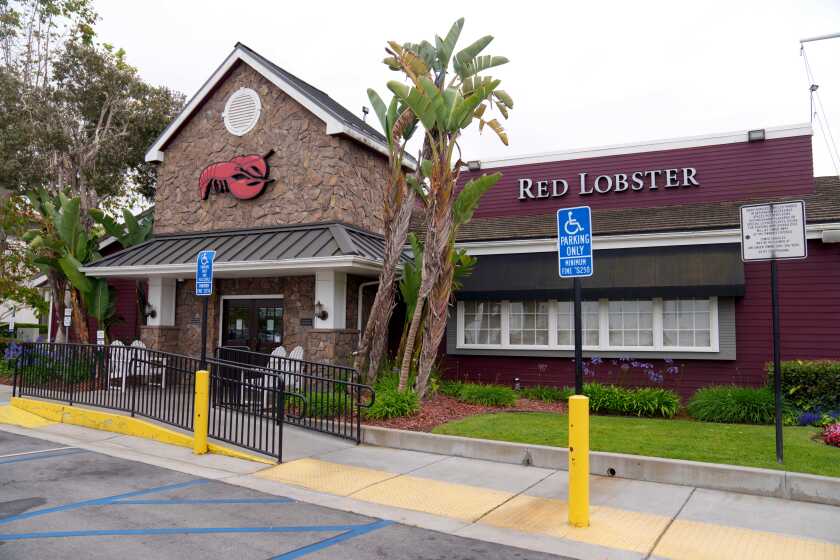Group Says San Diego Power Users Overcharged
San Diego Gas & Electric has overcharged its customers about $100 million in recent months by not sharing the savings of long-term power contracts signed by the utility, the consumer watchdog arm of the Public Utilities Commission alleged in a complaint filed Wednesday.
The alleged overcharging is the equivalent of about a 5% boost in rates for the 1.2 million people served by the utility, said Robert Kinosian, staff attorney with the Office of Ratepayer Advocates, an independent branch of the state agency that regulates utility rates.
The complaint accuses the utility of illegally charging its customers--including 100,000 in Orange County--expensive market rates for electricity that it buys at much cheaper, fixed prices under contracts signed with two electricity marketing companies in 1996 and 1997.
It asks the PUC to “stop SDG&E; from continuing to participate in the fleecing of its ratepayers.”
San Diego Gas & Electric President Debra Reed said that both the PUC and the Office of Ratepayer Advocates have known for years that the utility was keeping the benefits of the long-term contracts for its shareholders.
The company signed the contracts to help protect its shareholders against the risks of deregulation, she said.
Now that market prices for electricity are extraordinarily high, Reed said, the Office of Ratepayer Advocates is trying to “confiscate” the benefits of those contracts.
“We’ve been fully forthcoming over and over again,” she said.
The Office of Ratepayer Advocates motion asks the commissioners not to issue rebates to customers but instead to wipe away nearly one-fourth of the $437 million that SDG&E; claims it is owed by customers for electricity purchases between June 2000 and January 2001.
If approved by the commissioners, Kinosian said, “it means they’ll have to pay SDG&E; $100 million less than what SDG&E; is asking them to pay.”
“It’s a pretty significant amount of money,” he said.
Michael Shames, executive director of the San Diego-based Utility Consumers Action Network, called the alleged overcharging worse than theft.
“You have no idea how dirty this is,” he said. “This is more than a crime of robbery or theft. This is a crime of deception and betrayal.
“The sense of indignation I’m feeling right now is magnified by the fact that all through this crisis the company has loudly proclaimed that they’re not making any money on this market,” said Shames, “and that all they’re doing is passing costs through to customers--when in fact they were making nine-digit returns at their customers’ expense.”
San Diegans have had a far more brutal experience under California’s 1996 deregulation plan than the customers of Southern California Edison and Pacific Gas & Electric.
SDG&E; was the first utility to free itself of a rate freeze imposed as part of that deregulation plan. So when prices in the state’s fledgling wholesale electricity market began to soar last May, SDG&E; passed all those costs on to its customers.
Monthly bills doubled and in some cases tripled. After months of public outrage and protest, the Legislature and Gov. Gray Davis in September capped electricity rates for all SDG&E; customers except large businesses at 6.5 cents per kilowatt-hour, compared with market prices at the time of 21 cents per kilowatt-hour.
The revenue SDG&E; collects under the rate cap is not enough to cover its costs of buying power. The utility contends that it has so far paid out $681 million more than it has collected. The utility expects its customers to eventually pay that back.
Edison and PG&E; customers are technically still covered by the 1996 rate freeze, although the Public Utilities Commission on Tuesday voted to raise their rates by three cents per kilowatt-hour. The new rate increase does not apply to SDG&E; customers.
Kinosian argues that the law that capped rates in San Diego in September clearly directed SDG&E; to charge its customers “at cost” for electricity it produces itself or buys through long-term contracts.
“SDG&E; has overcharged ratepayers,” said Kinosian’s complaint, “to profit its shareholders.”
In other developments:
* California’s budget surplus, recently projected at $6 billion, will shrivel into a $2.9-billion deficit by October as a result of power purchases, state Controller Kathleen Connell said Wednesday. Her analysis shows that the state will spend $26.8 billion over the next 18 months to buy electricity, even after the rate hikes imposed on consumers this week.
Connell, a candidate for mayor of Los Angeles, said the deficit in the state’s $104-billion budget could total $7.4 billion by June 2002.
Sandy Harrison, spokesman for the Department of Finance, said Connell’s figures are overly pessimistic, based on worst-case assumptions about the cost of power.
* Small energy producers criticized Tuesday’s PUC ruling that ordered utilities to pay them at a reduced rate. The Renewable Energy Creditors Committee said the new formula is prone to price swings. Spokesman Chris Thompson said it also fails to resolve the problem of $1.5 billion in debts to small producers for deliveries over the past five months.
The California Cogeneration Council, representing companies that typically use natural gas to produce both electricity and heat, said it would appeal the ruling.
* State grid operators declared a Stage 2 power emergency after two large electricity units failed Tuesday, removing nearly 1,000 megawatts of supply on top of the 10,820 megawatts already missing from the grid because of power plant maintenance or equipment problems.






